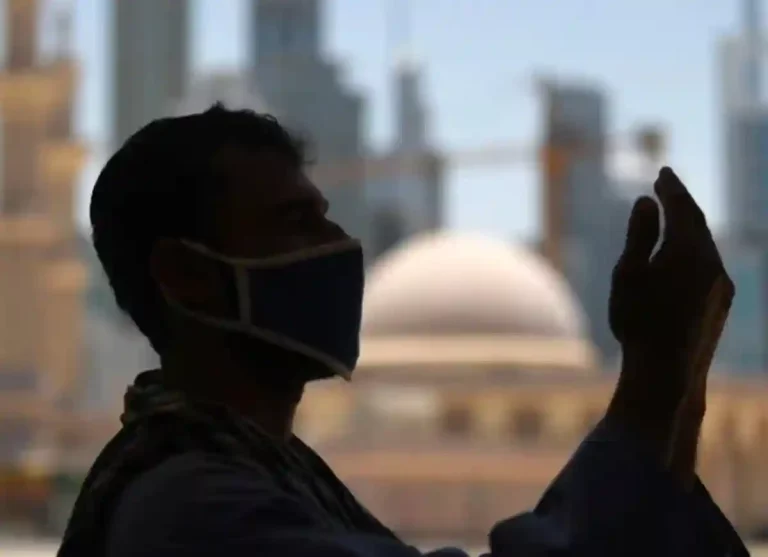Say to those who disbelieved, if they cease [disbelief], their past will be forgiven. (Sūrah al-Anfāl, 8:38.)
Muslims suffering from chronic illness without hope of recovery as well as very elderly people who have become physically weak are not required to fast but should feed a needy person for every day missed if they can afford it. The ruling applies also to those who are compelled to work the year round at hard labor or under severe conditions which make fasting extremely difficult. (Exams are not a valid excuse for students to break their fast in Ramadhán. ) This is based on Allah’s words:
And upon those who are able [to fast, but with hardship] – a ransom [as substitute] of feeding a poor person [each day]. (Sūrah al-Baqarah, 2:184.)
Ibn ‘Abbās explained: “It refers to the old man or old woman who are not able to fast, so for each day they should feed one poor person.” (Al-Bukhāri) One who is suffering from a chronic illness from which recovery is not expected comes under the same ruling as the frail elderly person.
Provisional Allowances:
Those with temporary illnesses may break the fast if they find it difficult, but they must compensate by making up the missed days after recovery. It is a matter of juristic consensus among scholars that it is permissible for the sick person not to fast. The proof for this is in Allah’s words:
So whoever among you is ill or on a journey – then [fast] an equal number of other days.(Sūrah al-Baqarah, 2:184.)
Thus, Allah has given permission for the ailing person not to fast during his illness and make up those days after Ramadhān. An illness is defined as any condition which takes a person out of the state of good health. There are several categories of illness:
There are illnesses that make fasting unbearable. A person afflicted with such an illness can break his fast according to the opinion of all scholars, and this is backed up by a considerable amount of evidence. ( The Qur’ān states: “Allah does not charge a soul except [with that within] its capacity.” (2:286) “…and do not burden us with what we have not the ability to bear.” (2:286) “And fear Allah as much as you are able.” (64:16)
There are illnesses that do not make fasting impossible but which can be made worse by fasting. If at least one reliable Muslim doctor determines that fasting will indeed aggravate a particular ailment, then it is preferable for the person to refrain from fasting. However, if he insists upon fasting in spite of that, his fast will be valid.
A person beset by an illness that requires medication to be ingested during the day may break his fast, especially if the consequences of delaying the medication are serious.
If breaking the fast will facilitate or speed up recovery, it is permissible to do so. One may refrain from fasting if he has a justifiable fear that fasting will make him ill, subject him to severe pain, or cause unbearable difficulties for him.
Fasting is not obligatory for a sick person as long as he remains sick. He is not obligated to fast until after he recovers. Therefore, if he should die before recovery, those days have not yet become obligatory for him. And when the fast is not an obligation upon him, it is not obligatory for anyone to feed the poor on his behalf, since feeding the poor substitutes for an obligatory fast.
The Messenger of Allah had said: “Whoever dies with a fast obligatory upon him, then his heir should fast on his behalf.” (Al-Bukhāri and Muslim) The implication of this hadith is also that whoever dies without a fast being obligatory upon him does not need to have someone fast for him, and he is like someone who died before Ramadhān.
![Can we miss the fast Ramadhán and their compensate? Compensated meaning,money, voluntary fasting,how to break your fast in islam and quranmualim. Learn Quran, Quran translation, Quran mp3,quran explorer, Quran download, Quran translation in Urdu English to Arabic, almualim, quranmualim, Islam pictures, Islam symbol, Shia Islam, Sunni Islam, Islam facts],Islam beliefs and practices Islam religion history, Islam guide, prophet Muhammad quotes, prophet Muhammad biography, Prophet Muhammad family tree.](https://www.quranmualim.com/wp-content/uploads/2019/05/Can-we-miss-the-fast-Ramadhán-and-their-compensateB.jpg)
Pregnant and breastfeeding mothers may also break their fast if they find it too difficult or fear for their health or for their child, but they must compensate for those days later. The stronger opinion of the scholars is that she does not have to feed a poor person as expiation. This is based on the fact that the Prophet never asked women to feed the poor or do any other kind of expiation in this situation, which means nothing is expected from them other than making up the days not fasted.
Travelers also have the option whether or not to fast during a journey. This is true for all travel, whatever the purpose. Generally, it is better for the traveler to fast unless he finds it too difficult, in which case he may break his fast. However, the person should not break his fast until he has at least departed from the area of habitation where he was residing, meaning that he should depart from its populated area and its buildings. Days not fasted during travel must be made up, as Allah has said:
So whoever among you is ill or on a journey – [fast] an equal number of other days. (Sūrah al-Baqarah, 2:184.)
Persons who need to break their fast to save the life of someone (such as from fire or drowning) should do so and compensate for the day after Ramadhān.
Women during menstruation and post-partum bleeding (nifās) may not fast and their fast is invalid if they do. They also need to compensate for these days by fasting them later.
![Can we miss the fast Ramadhán and their compensate? Compensated meaning,money, voluntary fasting,how to break your fast in islam and quranmualim. Learn Quran, Quran translation, Quran mp3,quran explorer, Quran download, Quran translation in Urdu English to Arabic, almualim, quranmualim, Islam pictures, Islam symbol, Shia Islam, Sunni Islam, Islam facts],Islam beliefs and practices Islam religion history, Islam guide, prophet Muhammad quotes, prophet Muhammad biography, Prophet Muhammad family tree.](https://www.quranmualim.com/wp-content/uploads/2019/05/Can-we-miss-the-fast-Ramadhán-and-their-compensateC.jpg)

![Can we miss the fast Ramadhán and their compensate? Compensated meaning,money, voluntary fasting,how to break your fast in islam and quranmualim. Learn Quran, Quran translation, Quran mp3,quran explorer, Quran download, Quran translation in Urdu English to Arabic, almualim, quranmualim, Islam pictures, Islam symbol, Shia Islam, Sunni Islam, Islam facts],Islam beliefs and practices Islam religion history, Islam guide, prophet Muhammad quotes, prophet Muhammad biography, Prophet Muhammad family tree.](https://www.quranmualim.com/wp-content/uploads/2019/05/Can-we-miss-the-fast-Ramadhán-and-their-compensateA.png)





